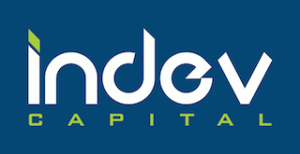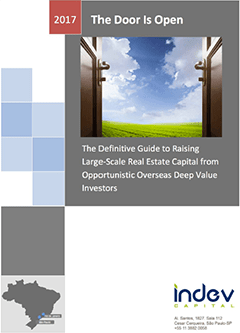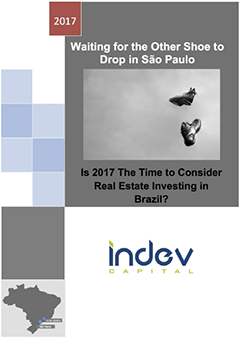
Gil Scott-Heron was a composer, musician, author and poet best known for writing and performing this spoken-word track called “The Revolution Will Not Be Televised”, which made its way into the cultural lexicon in 1970. For those interested in seeing a wonderful video of “The Revolution Will Not Be Televised” and pictures of a unique time in US history please click here.
Gil Scott-Heron stated, “The revolution takes place in your mind. Once you change your mind and decide that there’s something wrong that you want to affect, that’s when the revolution takes place. But first you have to look at things and decide what you can do. ‘Something’s wrong and I have to do something about it. I can effect this change.’ Then you become a revolutionary person. It’s not all about fighting. It’s not all about going to war. It’s about going to war with the problem and deciding you can affect that problem. When you want to make things better you’re a revolutionary.”
What do “The Revolution Will Not be Televised” and a poet musician in the early 1970s have to do with the changes occurring in Brazil and deep value real estate investing in Brazil at this time in the real estate cycle? Perhaps more than you think.
The Purpose of This Newsletter
This newsletter will examine a silent revolution underway in the emerging market of Brazil. In particular, we will discuss the emergence of Civic Capital which represents a significant change in the social fabric of the largest nation in Latin America. Our objectives are the following: one, define Civic Capital; two, analyze how and why this change is occurring; three, provide two personal stories of leading foot soldiers in the Civic Capital revolution; and four, offer a roadmap of how Civic Capital creates unique investment opportunities for deep value real estate investors.
Our journey today will start in NYC at 125th and Lenox Avenue in the late 1960s, after which we will have a discussion with a Peruvian economist in Lima, before finally arriving in two neighborhoods in São Paulo: Itaim Bibi, an upper income neighborhood, and my own neighborhood of Vila Madalena, an eclectic upper income neighborhood, where our journey will end. Let’s get started!
If you are new reader and would like to subscribe click here.
Lenox and 125th Street

Gil Scott-Heron’s album Reflections was released in 1970 during a time of significant social change on 125th Street and Lenox Ave in Harlem, NYC and in the larger United States. The US Civil Rights Movement was in progress and significant social and cultural changes had occurred in the previous decade, a large example of which is the 1964 Civil Rights Act. Senator Robert Kennedy, a hero to many in the USA, and Martin Luther King Jr., a hero nationally and globally, were both assassinated in 1968, a mere two years before the Reflections release. It was during this tumultuous time in US history that the song “The Revolution Will Not Be Televised” became an anthem of social change. At the time, the song was a call for civil rights; however, since its release the song has been used globally by others to express a desire to change the status quo.
In many ways, part of the present-day magic of the US economy is comparatively high participation of various socio-economic classes in the formal economy. In fact, one motivation of the civil rights struggle in the USA was expanding economic opportunity to all members of society including those that were largely excluded in the nation’s earlier chapters due to the lack of civil rights.
This concept of expanding economic opportunity brings us to the question that is core to our journey together: what makes a developed economy different from an emerging market? If an investor invests in an emerging market, what is the likelihood that the nation is moving in the right direction during the investment period? What investment opportunities are created through this change in the social fabric? These are important questions that we will attempt to answer during our journey today.
What Causes Inequality / Emerging Market Nation Status?
Peruvian economist Hernando de Soto Polar wrote an interesting and important book called The Mystery of Capital. The main message of de Soto’s work and writing is “that no nation can have a strong market economy without adequate participation in an information framework that records ownership of property and other economic information. Unreported, unrecorded economic activity results in many small entrepreneurs who lack legal ownership of their property, making it difficult for them to obtain credit, sell a business, or expand. They cannot seek legal remedies to business conflicts in court, since they do not have legal ownership. The existence of such massive exclusion generates two parallel economies, legal and extra-legal. An elite minority enjoys the economic benefits of the law and globalization, while the majority of entrepreneurs are stuck in poverty, where their assets—adding up to more than US$10 trillion worldwide—languish as dead capital in the shadows of the law.” (1)
In the past 15 years, Brazil has made meaningful progress in the reduction of inequality. The percentage of the population in poverty dropped from 24% in 2004 to 7.3% in 2014, which equates to approximately 30 million people leaving poverty during this period. The average monthly income of the country’s poorest 10% almost doubled in the past ten years, with growth of 91% between 2004 and 2014, according to data from the National Household Sample Survey (Pnad / IBGE). In addition, 98.5% of children and adolescents between 6 and 14 years old were enrolled in school in 2015. These are significant improvements.
However, are access to capital and educational opportunities, obviously huge factors, the full story behind what keeps a nation at emerging economy status? Did the great Hernando De Soto Polar miss something? Is there another “ Mystery of Capital” left untold?
If you are new reader and would like to subscribe click here.
The Emergence of Civic Capital in Brazil
About five years ago my wife, at the time my fiancée, and I were living in a neighborhood called Itaim Bibi. By all accounts, this neighborhood can be thought of as the center of the financial community and an upper middle income enclave in São Paulo. In general, to live there one would need to have a solid family income which would usually require education and exposure in a country like Brazil.
The Dog and The Gas Station

Man’s best friend, however, not to a certain gentleman’s Land Rover
One day, during my time there, I had a traumatic experience coming home from a run. I remember this like it was yesterday. An obviously upper class woman was walking on Rua Jesuino Arruda with a very well cared for and happy dog (there are homeless dogs in Brazil and also upper class dogs with nice clothes – even in a tropical country, these two groups of canines rarely interact). As she passed the Shell gas station, her dog desired to use the restroom. The dog started to pull the owner towards a large green Land Rover. The vehicle was parked while its owner was in the gas station purchasing something.… I said to myself, “There is no way that this lady is going to let the dog urinate on the tire of this car in front of everyone…” It was almost in slow motion as I watched, stunned… I was in shock…it happened!
(To be clear, there are great people in Itaim Bibi and to be sure the same type of behavior could happen at a gas station in Tribeca in NYC or in Palos Verdes Estates, CA etc. The author is not saying that this behavior is exclusive to Itaim Bibi, Brazil.)
The Definition of Civic Capital
One way to define a concept is to describe what it is not. This example of the dog and the Land Rover, while small and silly, is a perfect example of what Civic Capital is not. The National Bureau of Economic Research in Cambridge, MA has a working paper titled “Civic Capital as the Missing Link” which defines Civic Capital as “those persistent and shared beliefs and values that help a group or society overcome the free rider problem in the pursuit of valuable activities.” The paper goes on to describe the several advantages of this definition. “[It] clearly identifies the cultural norms and beliefs that matter: only those [actions] that help members of a community to solve collective action problems. As such this social “civic” capital has a positive economic payoff. It [the definition] also clarifies why the word “capital” is used because these beliefs and values are durable.”
Civic Capital values are passed on, often without our awareness, through intergenerational transmission, formal education, or socialization. “When parents put (costly) effort in transmitting certain values and priorities to their offspring, they invest in civic capital. When the formal education process tries to instill certain values and beliefs in the younger generations, it spends (mostly public) resources to accumulate civic capital. When individuals ostracize and reprimand behaviors they deem to be antisocial, they spend time and effort to teach certain values and beliefs to their fellow citizens, because they are well aware that only a few free riders can destroy a cooperative equilibrium and thus they intervene to preserve the benefit of cooperation.” Importantly, civic values and beliefs have a return only if shared by other members of the community.
The Civic Capital Revolution in Brazil
In many emerging markets, Brazil included, the truly powerful were never held to the same judicial standards as common shoplifters were and did not face legal consequences for their illicit activities. Corruption is in fact a form of free riding. However, everything changed on March 17th, 2014 as the result of a money laundering investigation that started at a gas station in Brasília and became a Civic Capital revolution. The revolutionary leader was a judge from Paraná and a team of prosecutors in the same state.
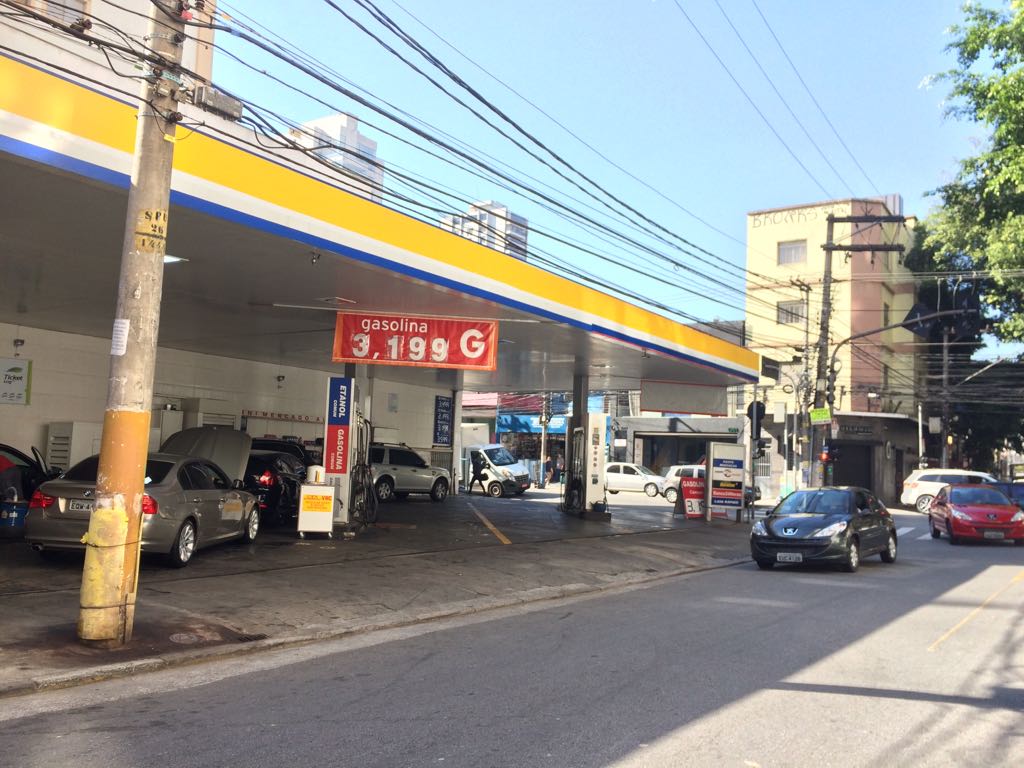
The Operation Car Wash (Lava Jato in Portuguese) Corruption Scandal, perhaps the largest corruption scandal on record, is an extreme example of the execution of a systematic “free riding” scheme. Rich and/or powerful executives of the national oil company, Petrobras, effectively created an “overpaying system” that created an extensive web of bribes, kickbacks, and money in overseas bank accounts. The scale of the corruption was quite outstanding with conservative estimates at US$5B in payments. However, and this is crucially important, at this particular time in Brazil, many of the members of the elite that happened to engage in corruption or “free riding” behavior are now unable to execute the “free ride.” For the first time in the history of Brazil, billionaires and the most powerful members of society are going to jail, incurring significant fines, paying a price. Why?
A Change Agent If there Ever Was One
Sérgio Moro is not from an elite family, nor is he from the power centers of São Paulo, Rio de Janeiro, or Brasília. His father was a geography professor and his mother a professor of Portuguese. However, this judge from a city outside of the power centers of Brazil, with the help of a team of prosecutors, is doing something that has a huge impact on Civic Capital and the author believes is the start of a Silent Civic Capital Revolution. Sérgio Moro and the prosecutors are changing the calculus of the free riding behavior among certain corrupt members of the elite. A true Civic Capital revolution requires the elimination of the acceptance of the free rider concept. Actual jail sentencing that has occurred during Operation Car Wash greatly changes the cost benefit analysis of deviant behavior for an elite person with access to decide to attempt a “free ride.”
Powerful business people such as Marcelo Odebrecht (ex-CEO of Odebrecht), José Aldemário Pinheiro Filho (known as Léo Pinheiro, former president of OAS construction company), Jorge Luiz Zelada (ex-director of Petrobras) and politicians such as Antonio Palocci (former chief of staff), Sérgio Cabral (former Rio de Janeiro governor) and Eduardo Cunha (former president of the congress) had almost no chance of going to jail for corrupt acts before this Lava Jato case. Hence, when Brazilian citizens both elite and non-elite see a person such as Marcelo Odebrecht, CEO of one of the top 10 construction companies in the world (at least before the scandal), in jail it has an impact on the mind of the next potential free rider. Operation Car Wash and the actions of Sérgio Moro and the prosecutors have begun to build the crucially important reality that all people are equal under the law. This is the foundation of a civic society.
Two Soldiers in the Social Capital Revolution
Civic Soldier #1 – Andre Kaufmann, Entrepreneur, and Conscious Capitalist
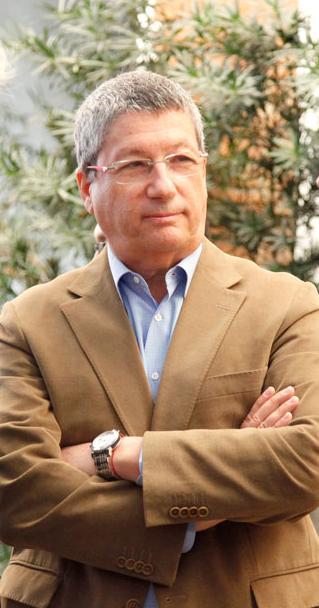 Andre Kaufmann is a special person and, in full disclosure, is one of the first five people I met when I arrived in Brazil. We bonded immediately and he was very helpful to my starting my new life here in Brazil. To be fair, it was a special time in my life. I was still reeling from losing both of my parents within six weeks to cancer and he took me under his wing as I started a new life and a new company here in Brazil. I really love this man 🙂
Andre Kaufmann is a special person and, in full disclosure, is one of the first five people I met when I arrived in Brazil. We bonded immediately and he was very helpful to my starting my new life here in Brazil. To be fair, it was a special time in my life. I was still reeling from losing both of my parents within six weeks to cancer and he took me under his wing as I started a new life and a new company here in Brazil. I really love this man 🙂
From Entrepreneur to Civic Capital Soldier
Uncle Andre, his nickname, was the owner and CEO of an industrial company for over 25 years. After selling the company in the late 1990s, Uncle Andre started working as a consultant with other CEOs and executives. He understood clearly the isolation that only an entrepreneur sometimes experiences as there are some issues that cannot be shared with members of your team. He created a Forum structure such that these entrepreneurs had an open environment to share their ideas and challenges. The main rule in the Forum was that discussions had to focus on solving problems and facing challenges with a positive attitude.
Seven years ago, Uncle Andre started the Conscious Capitalism Chapter in Brazil. In the words of Conscious Capitalism Trustee R. Edward Freeman, a Professor at University of Virginia’s Darden School of Business, ““We need red blood cells to live (the same way a business needs profits to live), but the purpose of life is more than to make red blood cells (the same way the purpose of business is more than simply to generate profits).”
Uncle Andre has used his vast contacts through his successful consulting business to recruit top-level CEOs in Brazil who are working to make Brazil a better place through their businesses. Some of this effort is mentoring entrepreneurs from disadvantaged backgrounds, supporting non-profits, and of course the entrepreneurs in the group running their businesses with the highest ethical and civically minded standards. These executives meet to discuss ways that their companies and they themselves can make a positive difference in the world and in their nation. I personally have worked with Uncle Andre on this mentoring of entrepreneurs with less access than elite members of society. I can state from personal experience that Conscious Capital and Uncle Andre walk the talk! Uncle Andre and his team reach people that normally would not have access to this top-level mentorship based on Brazil’s social structure.
Uncle Andre feels that Brazil is changing. He thinks that Operation Car Wash, while not elegant, is good for Brazil as the changes and cleanup are out in the open for everyone to see. Similar to changing the oil in a car, you have to drain the old oil to put new fresh oil in and it is often not a pretty process.
Uncle Andre is optimistic about Brazil’s future. He fully admits that one of the biggest challenges to Brazil reaching its potential is a new generation of political leaders. He believes that it is likely that the first new wave of politicians will be successful entrepreneurs as they are less susceptible to corruption. This will be followed by a new generation of young people with a firm Civic Capital mindset that we are discussing.
Hats off to Civic Capital Soldier Number one – Uncle Andre!!!!!!
Civic Capital Soldier Number #2
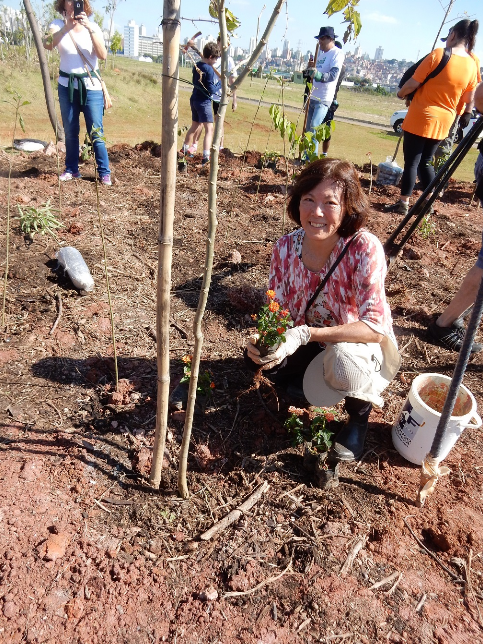 Eiko Sugiyama is a neighbor in my home of Vila Madalena, São Paulo. She grew up in the countryside of the state of São Paulo, in a large Japanese community. Solidarity and thinking about others were the norm. She remembers that all important decisions were taken as a group. This experience developed Eiko’s appreciation of the power of the collective. In addition, due to her rural background Eiko developed a passion for nature and when she retired she began to take care of the plants, flowers and trees in public squares.
Eiko Sugiyama is a neighbor in my home of Vila Madalena, São Paulo. She grew up in the countryside of the state of São Paulo, in a large Japanese community. Solidarity and thinking about others were the norm. She remembers that all important decisions were taken as a group. This experience developed Eiko’s appreciation of the power of the collective. In addition, due to her rural background Eiko developed a passion for nature and when she retired she began to take care of the plants, flowers and trees in public squares.
Eiko was a science teacher for many years in São Paulo and brought her community orientation with her to our neighborhood, Vila Madalena. My wife and I were on one of our walks one weekend and found the loveliest small flower garden park. It was obviously cared for at a level that, quite honestly, is rare to see anywhere. I met Eiko as she was busy weeding herbs and planting flowers. We started talking partially in Portuguese, partially in my extremely rusty Japanese.
The square (due to Eiko’s efforts, now a park) that was close to her house was unkempt. She decided to improve it with wall painting, trash removal, pruning and planting. She also covered the benches with mosaic tiles with the help of some friends. Over time people started noticing this small lady doing all this work so often. People admire and are inspired by her initiative to make a difference every week. Slowly, people started to join initiatives like hers in the community. People were not only moved by her activity but also by the power of knowing that they too could make a difference.
Eiko believes that many people want to make a difference but do not know where to start. There is often a willingness to help, but the initial mobilization is the hardest. In addition to caring for parks, she now has some groups organized on Facebook to follow her lead on weekends to several collaborative actions in the neighborhood. In fact, my daughter plays at one of Eiko’s supervised playgrounds at least several times a week. She wants to replicate this movement in other neighborhoods in São Paulo.
Eiko is a very low-key person and does not seek publicity. She believes that a collective effort is the best solution, which means bringing in more neighbors, creating a community around public spaces, and including city authorities and private companies,. Fortunately, one company signaled interest in her work.
Similarly to Uncle Andre, Eiko believes that leadership is the key to change in Brazil. During our discussions, she mentioned that because Brazil never had any significant wars and does not have large-scale natural disasters, there have been fewer times that people have been forced to work in a collective way. Eiko believes that future leaders demonstrating Civic Capital through their behavior is the way to change society. She also believes that education must be improved in Brazil. Again, this is for the benefit of the collective.
To her surprise and pleasure, the team of people helping her in the parks tends to be young professionals in their 30s and 40s, not older retired people with more time. This provides optimism for the future.
Hats off to Civic Capital Soldier Number two – Eiko!!!!!!!!!
Civic Capital and The Deep Value Investor – Now Down to Dollars and Cents…
The efforts of Mr. Moro and his team of prosecutors started a Civic Capital revolution in Brazil, and there are many companies and individuals that are now involved in the Operation Car Wash Scandal. At this level of power and influence, it is highly likely that these individuals either felt that they would never get caught or that if they did get caught, they would have some type of quick fix solution. However, the traditional channels to rectify these challenges, government-funded banks being the most obvious, are no longer available. In addition, per the foot soldiers such as Uncle Andre and Eiko, Brazilian society is much less permissive of the “free rider” involved in these corruption cases.
Moreover, prosecutors are very serious about these cases and the financial flexibility of many firms is compromised immediately upon involvement in the large corruption scandal. A great example would be the asset sales of Camargo Correa, BTG and JBS, the largest or close to largest companies in their sector in Brazil, due to the corruption scandal.
Importantly, as the downturn in Brazil has been longer and deeper than most expected, the banks, and this is just now happening, are becoming less willing to roll over loans than they have been in the past two years. This tightening of credit for even the wealthiest members of society is now finally causing the hard conversations that investors were expecting in 2015 and 2016. Combine a downturn with a company in distress due to corruption allegations and you find a motivated seller of assets.
Often, due to the nature of the situation, many of these sellers desire a quiet sale of assets, free and clear, ideally to a “quiet buyer” who is not part of their social network to avoid embarrassment and the social stigma that many of these asset owners now face. Many have tried every other alternative over the past two years and are now running out of options. Alas, the weight of time, the lack of other options, and the Brazilian version of a hard conversation with the commercial banker are finally taking their toll. It took longer than all of us thought, including your author.
This economic and social pressure of Civic Capital creates a unique window for deep value foreign investors. If you would like to learn more about Civic Capital and how it is changing Brazil, please reach out. In addition, if you are a large-scale investor and are curious to know how Civic Capital has created unique unnatural sale investment opportunities with substantial economic returns, please feel free to email me at joseph.williams@indevcapital.com.
Thanks for reading and until next week!
Joseph W. Williams
CEO & Founder InDev Capital
